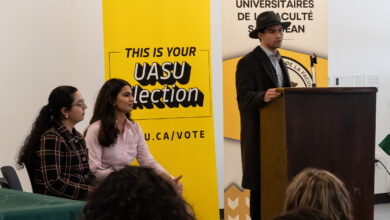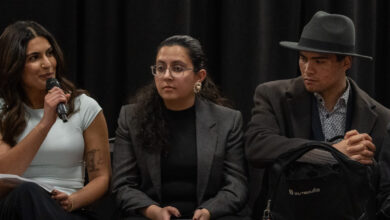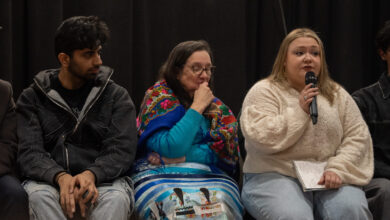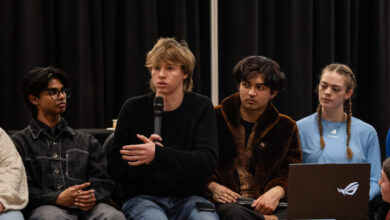Alberta’s measles outbreak is the cost of 20 years of anti-vaccine misinformation
Decades of growing anti-vaccine misinformation set the stage for Alberta’s biggest measles outbreak in years — and it didn’t start with COVID.
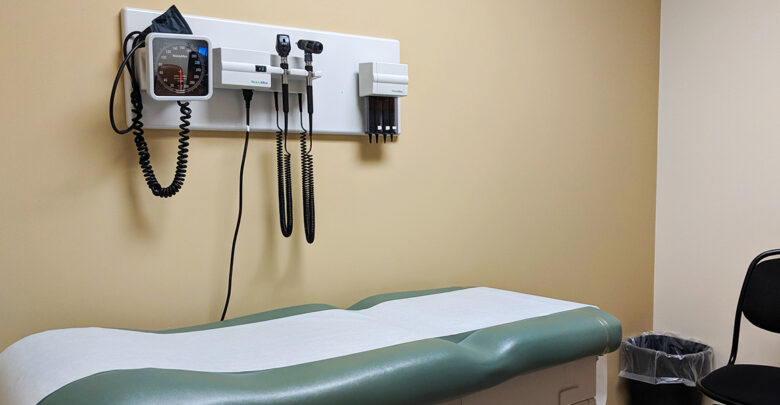 Helen Zhang
Helen ZhangYou know things are bad when diseases from medieval paintings start to make a comeback. Next thing you know, Alberta will be offering public service announcements on how to avoid scurvy and leech bites.
As Alberta faces its largest measles outbreak in decades, the cost of 20 years of growing anti-vaccine sentiment has finally come due. So far, there are more than 300 confirmed measles cases in the province, with most among children ages five to 17. This should not come as a surprise. For years, health experts warned that declining vaccination rates would open the door to once-contained diseases like measles.
The measles outbreak reflects a political environment that has emboldened anti-science views for years. Misinformation about childhood vaccines had started gaining traction. Instead of reinforcing the importance of immunization, Alberta’s political leadership often framed vaccine resistance as a legitimate form of personal freedom. In 2022, the “Freedom Convoy” protests opposed vaccine mandates and amplified broader anti-vaccine rhetoric. Provincial leaders expressed sympathy toward the demonstrators rather than standing firmly with public health authorities.
The government continued this approach in 2024 by proposing amendments to the Alberta Bill of Rights. These amendments aimed to enshrine the “right” to refuse medical treatment, including vaccines, even during public health emergencies. Rather than protecting liberty, this move weakened the legal basis for public health campaigns and signalled that collective responsibility could be set aside.
It’s tempting to only blame COVID-19 for the surge in vaccine skepticism, but distrust in vaccines had been festering long before 2020. In the early 2000s, a discredited but widely publicized claim that the MMR vaccine caused autism began eroding public confidence. Despite countless studies disproving any link, the damage stuck. Social media, celebrity “natural health” endorsements, and growing suspicion of institutions all poured fuel on the fire. By the time COVID-19 hit, vaccine trust had already crumbled.
Today, fewer than 70 per cent of Albertan children are fully immunized against measles by age two, far below the 95 per cent needed for herd immunity. This figure is not just a statistic. It reflects the success of misinformation campaigns and the failure of public health officials to counter them over two decades.
Rather than immediately confronting this crisis, Alberta’s government has downplayed its urgency. On April 8, Health Minister Adriana LaGrange said the outbreak was not yet severe enough to warrant a public address from the province’s chief medical officer. This passive approach ignores the nature of measles. It is a highly contagious disease that spreads rapidly and can cause permanent disabilities or death, especially among young children.
Medical professionals are already sounding the alarm. Dr. Shelley Duggan, president of the Alberta Medical Association (AMA), warned that cases could top 1,000 within weeks if action is not taken now. But these warnings will come too late unless political leaders fight vaccine misinformation, not just in emergencies, but consistently.
The measles outbreak in Alberta is not simply about personal choice. It is the predictable outcome of 20 years of eroding trust, government timidity in the face of pseudoscience, and misinformation outshouting science. Rebuilding that trust will take more than a short-term response. It demands a long, determined effort to undo the damage before another preventable disease seizes the opportunity.

